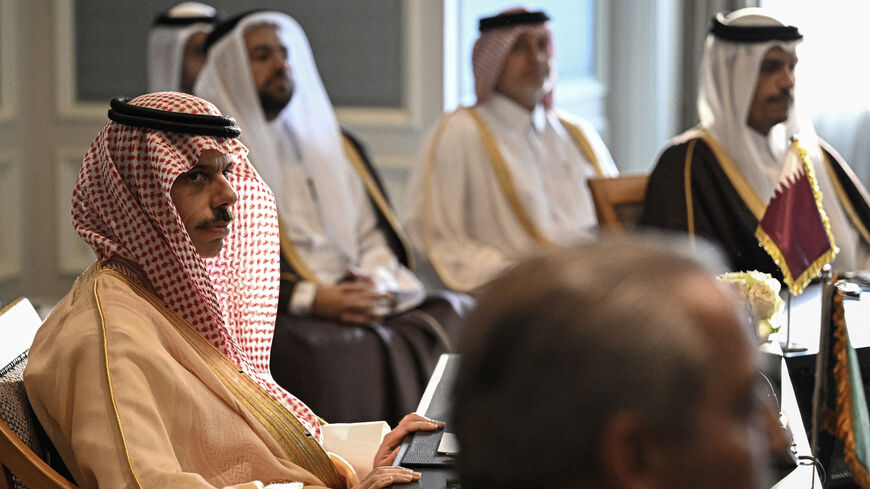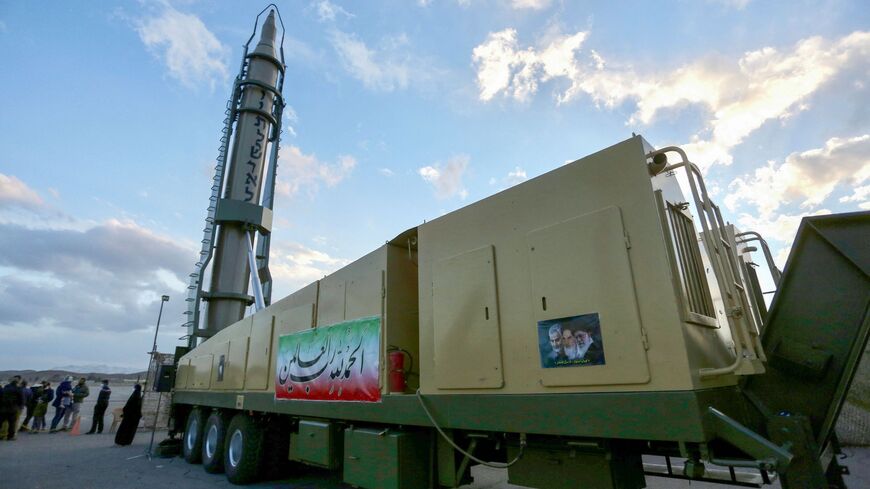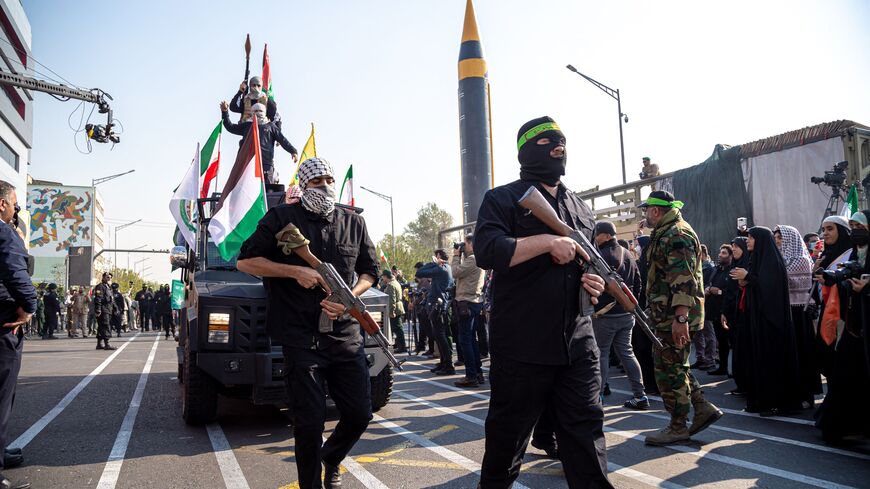Iran gloats as Arab states, Turkey exercise caution after attack on Israel
Iran conducted an unprecedented and large-scale attack on Israel in retaliation for the strike that killed IRGC members in its Syrian consulate.

Iranian officials boasted on Sunday about their unprecedented attack against Israel, while Arab governments called for de-escalation amid fears of a major regional conflict.
Iran said it launched missiles and drones at Israel on Saturday in response to the suspected Israeli strike that killed seven members of the Islamic Revolutionary Guard Corps (IRGC) in the Iranian Consulate in Syria earlier this month.
Israel said Iran launched 170 drones, more than 120 ballistic missiles and more than 30 cruise missiles. Israel military spokesperson Daniel Hagari said that Israel downed 99% of the threats and that the attack resulted in minor damage. Israeli media reported that a 7-year-old girl was wounded by shrapnel that hit her home near the Bedouin community near Arad.
US officials said they helped Israel repel the attack. Moreover, Jordan’s governmental cabinet said on Sunday that the kingdom’s armed forces confronted flying objects that entered Jordanian airspace to protect its citizens, the official news outlet Al-Mamlaka reported.
Iran and Israel have been engaged in a shadow war for decades. Israel is suspected of carrying out regular airstrikes against Iranian military targets in neighboring Syria, viewing the presence of Iran as well as its proxy Hezbollah, which is itself engaged in cross-border exchanges with Israel, as a threat. Saturday marked the first time Iran has attacked Israel from within the Islamic Republic.
Iran confident
Iran’s political military leaders expressed confidence on Sunday. President Ebrahim Raisi said in a statement that Iranian forces “turned a new page in the history of Iran’s authority and taught a lesson to the Zionist enemy.”
IRGC commander-in-chief Hossein Salami told the semi-official Press TV that Iran is willing to attack Israel from its own territory again in the future.
“From now on, if the Zionist regime targets any of our personnel, properties and civilians, we will not hesitate to retaliate from our own land,” said Salami.
Salami added that the attack could have been more significant.
“The operation could have been executed on a much larger scale. We decided to just focus on the Israeli targets that are used directly against us and our allies in the region.”
In a post on X on Sunday, Iranian Foreign Minister Hossein Amir-Abdollahian said the Islamic Republic has no current plans to strike Israel again but will respond to “any new aggression.”
“At this point, the Islamic Republic of Iran has no intention of continuing defensive operations, but if necessary, it will not hesitate to protect its legitimate interests against any new aggression,” he said.
Iran additionally summoned the ambassadors of the United Kingdom, France and Germany on Sunday, citing “irresponsible statements” they made about the attack, the official Islamic Republic News Agency reported.
French President Emmanuel Macron and German Prime Minister Olaf Scholz both condemned Iran’s actions. UK Prime Minister Rishi Sunak condemned the attack as well and said the British military shot down some of the drones fired at Israel.
Gulf, Turkey cautious
Governments throughout the Arab world called for de-escalation on Sunday in response to the Iranian attack. In a statement, the Saudi Foreign Ministry expressed its “deep concern over the military escalation developments in the region and its serious repercussions.”
“The Kingdom urges all parties to exercise maximum restraint and to protect the region and its people from the dangers of war,” added the ministry.
The Qatari Foreign Ministry echoed that sentiment, saying in a statement that Doha “expresses its deep concern about the developments in the region and calls on all parties to halt escalation, promote calm and exercise maximum restraint.”
The United Arab Emirates’ Foreign Ministry additionally called for exercising restraint and expressed concern over the situation, according to the official Emirates News Agency. The three Gulf states did not mention Iran or Israel in their statements.
Jordanian Foreign Minister Ayman Safadi called for de-escalation but tied the tensions to Israel’s war against Hamas in Gaza.
“Regional escalation must be prevented. It could push whole region into abyss of war,” said Safadi on X. "But 1st step towards de-escalation is ending the Israeli aggression on Gaza & starting to implement the 2-state solution as it is the only path to security & peace for all.”
There is considerable anger at Israel in Jordan, where most of the population is of Palestinian origin, and there have been several protests outside the Israeli Embassy in Amman in recent days.
Iranian state media mocked Jordan’s King Abdullah II over the kingdom’s efforts to protect its airspace.
The Kingdom of Jordan was the first Arab country to directly protect Israel's skies. pic.twitter.com/dYr3kBrTt3
— IRNA News Agency (@IrnaEnglish) April 14, 2024
Turkey’s Foreign Minister called for restraint in a phone call with Amir-Abdollahian on Sunday, Turkish public broadcaster TRT reported. While Fidan urged steps to reduce tensions in the region, Abdollahian assured him that Iranian retaliation was over unless Iran was attacked again, according to the broadcaster.
Separately, the Turkish Foreign Ministry said in a statement later on Sunday that Ankara conveyed the same call to “Western countries that have influence on Israel.” Describing the Israeli attack on the Iranian Consulate in Syria as against international law, the ministry warned, “Iran’s retaliation to this attack and subsequent developments have once again shown that incidents can quickly turn into a regional war.”
In a statement late Saturday, Egyptian Foreign Ministry spokesperson Ahmed Abu Zeid said Egypt expressed "deep concern" and urged "the exercise of the utmost restraint." Like his Jordanian counterpart, Zeid tied the escalation to the Gaza war.
"Egypt considers the dangerous escalation the Iranian-Israeli arena is witnessing is nothing but a direct result of what Egypt has previously warned about, the dangers of expanding the conflict in the region as a result of the Israeli war against the Gaza Strip, and the provocative military actions being taken in the region," he said.
Ezgi Akin contributed to this report.








